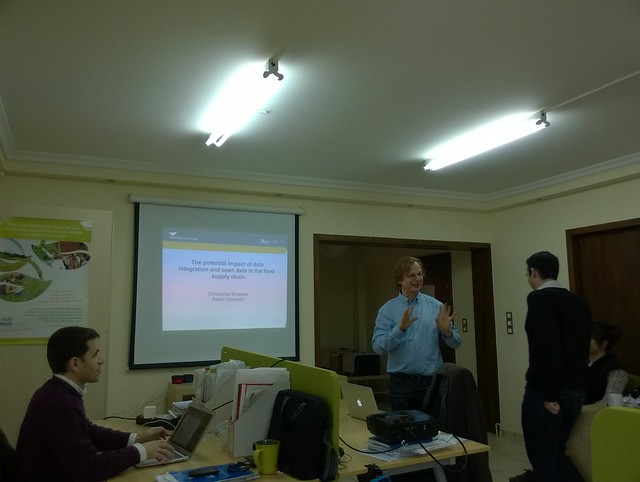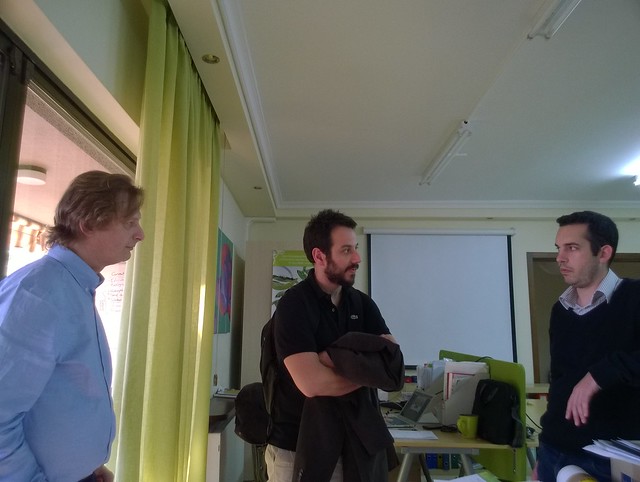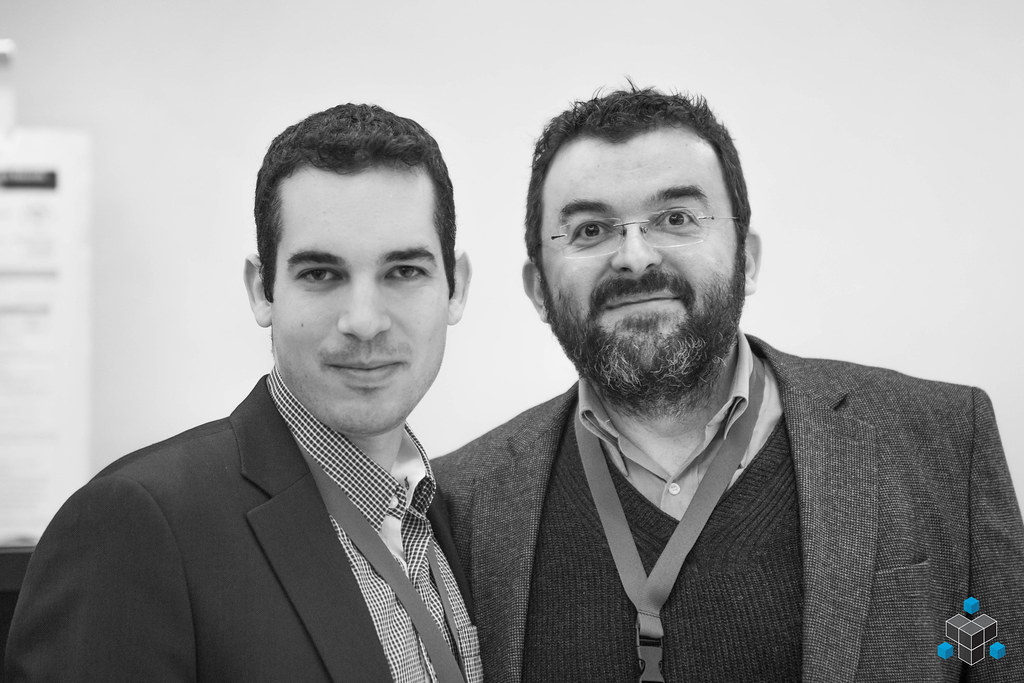The SEMIC 2014 Conference (Semantic Interoperability Community), titled "Metadata Governance & Management" was held on 9/4/2014 in Athens, Greece at the premises of the National Center of Public Administration and Local Governance, as another one of the related events in the context of the Greek Presidency of the Council of the European Union in collaboration with the Greek Ministry of Administrative Reform and e-Governance. It engaged about 199 participants from almost all EU member states (there were about 220 registrations) plus the 24 speakers (also from USA and Japan, among others), and aimed to explore how Public Administrations can use semantic technologies to make information exchange efficient and effective, allowing them to operate at lower costs and provide better services.
In this direction, the Conferfence consisted of 2 large sessions, each one of which consisted of smaller sessions:
In this direction, the Conferfence consisted of 2 large sessions, each one of which consisted of smaller sessions:
- Introduction / Keynote speeches: Included, among others, a presentation from Vassilios Peristeras from the European Commission (and one of the people behind the Rural Inclusion ICT-PSP project that we were working on under the GRNET umbrella) ho highlighted the fact that there are already enough vocabularies and approaches developed so there is no need to develop new ones; instead, the existing ones should be reused. The outcomes are publicly available through the JOINUP web site
- Session 1: Metadata Governance and Management
- Session 2: Semantic Interoperability
The full program of the Conference can be found here, while the presentations will also be available shortly from the same link.
Skipping the details from each presentation (most of which I found really interesting), it was obvious that everyone highlighted the need of using existing standards and reusing existing work instead of duplicating effort and working from scratch. Most of the solutions presented were based on existing standards and identified the need for linking publicly available e-Gov data. Good practices and recommendations were presented in several cases, such as the use of persistent and unique identifiers (URIs), documenting all developments such as standards, providing both a human- and a machine-readable format of the data/metadata.
Muriel Foulonneau, one the reviewers of the now over VOA3R project was also there, presenting the really interesting approach of re-using existing "building blocks" = components from other projects instead of developing additional standards, in the context of the e-SENS project. I am really fond of reusing existing material instead of developing new ones, so I vote for the approach presented in Muriel's presentation. Her presentation was followed by the one by Ralph Hodgson, CTO of TopQuadrant, a person and a company heavily involved in semantic interoperability and standards, not limited to the public sector and e-government. I also enjoyed the presentations of John Sheridan titled "Linking Legal Data" and the one by Martin Le Vrang which presented a really practical application of semantic interoperability in the context of online job search in EU - really close to what we are working in AK in the context of projects like CerOrganic & AGRICOM.
Of course I also enjoyed the last presentation of the Conference, provided by Johannes Keizer about AGROVOC, VocBench and AGRIS, as case studies of the semantic interoperability between different systems in the agricultural sector. This was by far the most closely related presentation to my interests.
The main outcomes of the Conference were the following:
The main outcomes of the Conference were the following:
- Using unique, persistent URIs;
- Avoid using machine non-readable formats (PDF) when publishing data; instead use formats such as HTML (human-readable) and XML/RDF (machine readable);
- Reusing existing standards instead of developing new ones, such as the ones already available through the JoinUP portal, the eGov Core Vocabularies, the DCAT AP for describing datasets etc.;
- Define and develop sustainability plans for each new project and workflow;
- Share all developments, standards etc. and keep them open;
During the Conference I had the pleasure to get involved in discussions with long-time friend and colleague in projects +Johannes Keizer (also here), Muriel Foulonneau (about both the VOA3R and agINFRA projects), Nikos Loutas (ex- Rural Inclusion project member) and Vassilis Peristeras (also about the background of the Rural Inclusion project), as well as Maria Kardami, Information Systems Developer at Publications Office of the EC. I also had the chance to meet again Charalampos Koutouris from NCSR Demokritos, which was one of the participants of the Big Data School which we organized some months ago - he provided some really interesting feedback and his experience.
Overall the Conference was a really useful experience, keeping us updated on the use of the semantic standards in the public sector as well as providing opportunities for networking and dissemination.
SEMIC 2015 will probably take place in Latvia, so keep tuned!
Overall the Conference was a really useful experience, keeping us updated on the use of the semantic standards in the public sector as well as providing opportunities for networking and dissemination.
SEMIC 2015 will probably take place in Latvia, so keep tuned!





 SCAR was established
SCAR was established 

